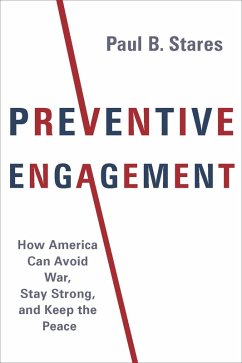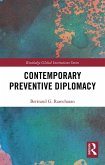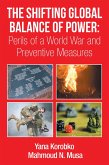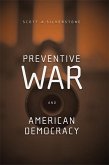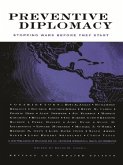The United States faces an increasingly turbulent world. The risk of violent conflict and other threats to international order presents a vexing dilemma: should the United States remain the principal guarantor of global peace and security with all its considerable commitments and potential pitfalls--not least new and costly military entanglements--that over time diminish its capacity and commitment to play this vital role or, alternatively, should it pull back from the world in the interests of conserving U.S. power, but at the possible cost of even greater threats emerging in the future?
Paul B. Stares proposes an innovative and timely strategy-"preventive engagement"-to resolve America's predicament. This approach entails pursuing three complementary courses of action: promoting policies known to lessen the risk of violent conflict over the long term; anticipating and averting those crises likely to lead to costly military commitments in the medium term; and managing ongoing conflicts in the short term before they escalate further and exert pressure on the United States to intervene. In each of these efforts, forging "preventive partnerships" with a variety of international actors, including the United Nations, regional organizations, nongovernmental organizations, and the business community, is essential. The need to think and act ahead that lies at the heart of a preventive engagement strategy requires the United States to become less shortsighted and reactive. Drawing on successful strategies in other areas, Preventive Engagement provides a detailed and comprehensive blueprint for the United States to shape the future and reduce the potential dangers ahead.
Paul B. Stares proposes an innovative and timely strategy-"preventive engagement"-to resolve America's predicament. This approach entails pursuing three complementary courses of action: promoting policies known to lessen the risk of violent conflict over the long term; anticipating and averting those crises likely to lead to costly military commitments in the medium term; and managing ongoing conflicts in the short term before they escalate further and exert pressure on the United States to intervene. In each of these efforts, forging "preventive partnerships" with a variety of international actors, including the United Nations, regional organizations, nongovernmental organizations, and the business community, is essential. The need to think and act ahead that lies at the heart of a preventive engagement strategy requires the United States to become less shortsighted and reactive. Drawing on successful strategies in other areas, Preventive Engagement provides a detailed and comprehensive blueprint for the United States to shape the future and reduce the potential dangers ahead.
Dieser Download kann aus rechtlichen Gründen nur mit Rechnungsadresse in A, D ausgeliefert werden.

